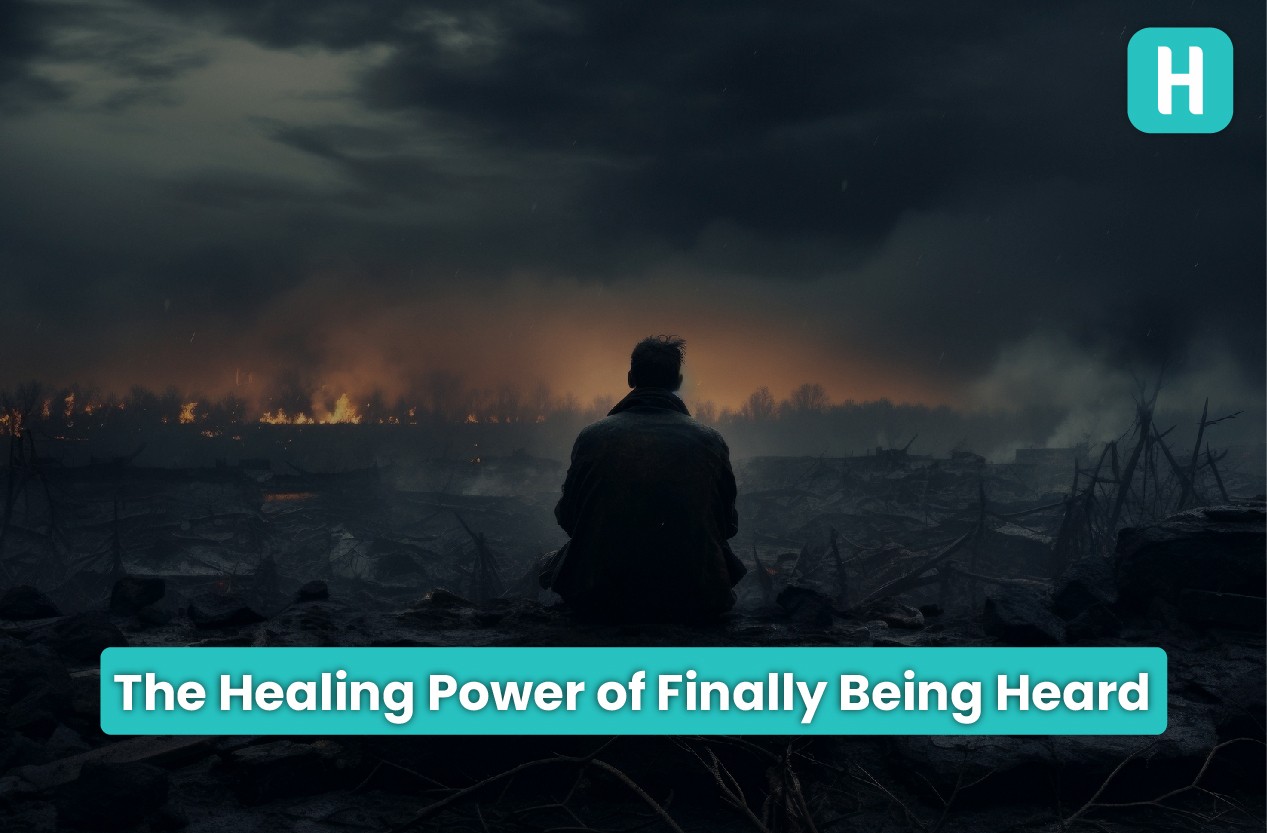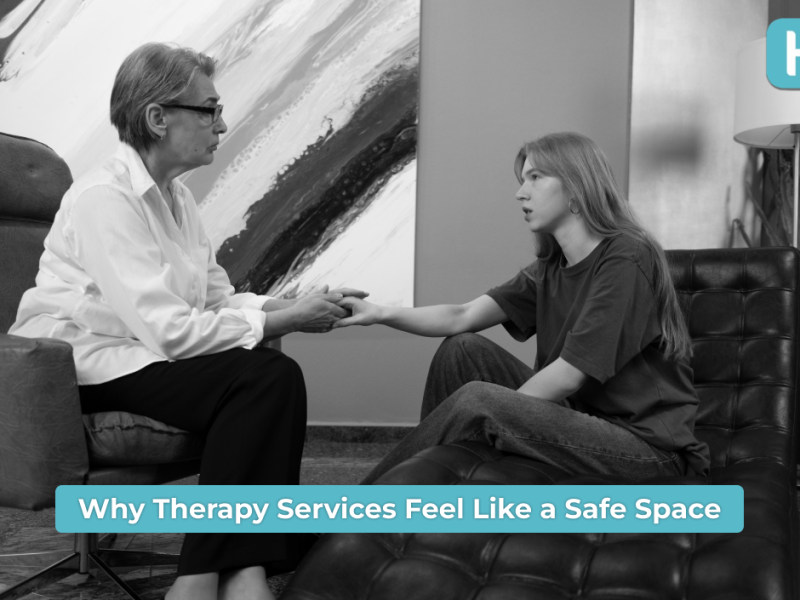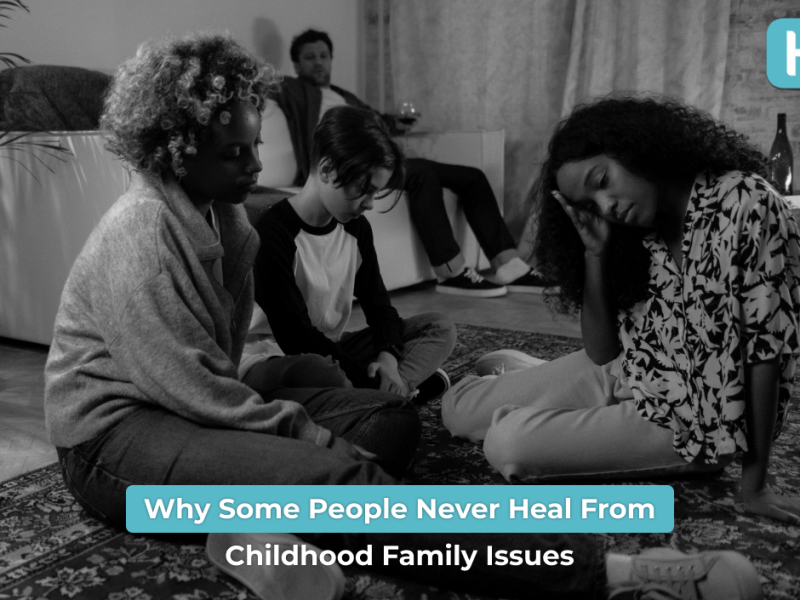“Why do I feel like I don’t exist… unless I’m useful?”
That question haunted me for years. I wasn’t looking for applause. I wasn’t trying to be dramatic. I just wanted someone—anyone—to hear me. No interruptions. No dismissals. No “You’re being too sensitive. Just a pause. A space. A moment where my pain didn’t have to be justified. That’s what it means to feel invisible. And that’s why finally being heard… heals. Let’s talk about the healing power behind being emotionally seen—especially when it’s been missing your whole life.
When You’re Never Heard, You Start to Disappear
Here’s something most people don’t understand:
It’s not always the loud trauma that shapes us. Sometimes, it’s the silence. The unanswered cries. The shrugged-off feelings. The “You’re overreacting” after your heart just shattered. And so you learn to go quiet. To stop expecting comfort. To doubt your reality. I didn’t know the term back then, but I know it now:
And it’s one of the quietest destroyers of self-worth out there.
And the worst part?
No one sees it. So you start believing the lie: “Maybe I really am too much.” But here’s the truth that cracked me open:
You weren’t too much.
You were just never heard.
I Spent Years Feeling Invisible — And It Wasn’t Just in My Head
Every room I walked into, I shrank. Not physically—but emotionally. I’d second-guess every sentence. Rehearse my truth, then swallow it whole.
Sound familiar?
If you’ve ever felt the need to “tone yourself down” just to be accepted, you’ve likely lived through years of emotional invalidation.
Let’s call it what it is:
I spent years feeling invisible not because I was unworthy,
but because I was constantly surrounded by people who didn’t know how to listen.
That’s when I realized the root of my exhaustion wasn’t overthinking. It was under-healing. And what I needed was not more advice. Not more “tough love.” What I needed… was to be heard.
Signs You Weren’t Heard as a Child
You didn’t imagine it. And you’re not being dramatic.
Here’s how unhealed childhood invalidation can show up:
- You say “sorry” more than you say “help.”
- You feel safer when you’re silent.
- You only express your needs after everyone else is okay.
- You freeze when people ask how you feel—because you honestly don’t know anymore.
- You write messages, then delete them. Over and over.
If this hits home, here’s what you need to know:
You didn’t become “needy.” You became conditioned to believe your needs were a burden. But healing is possible. And it begins with the healing power of finally being heard—really heard.

Why Being Heard Is Essential for Mental Health?
This isn’t just about emotions—it’s about the brain, too. Neuroscience proves it:
When someone validates your experience, your brain releases oxytocin, the bonding hormone. Your body calms. Your breathing slows. You start to trust again. But when you’re ignored or gaslighted? Your brain is flooded with cortisol, the stress chemical. You feel unsafe, anxious, and disconnected. This is why being heard is essential for mental health. It’s not just comforting. It’s regulated. It’s restoring. It literally tells your nervous system: “You’re safe now.”
Best Way to Get Healing Power Back? Create Safe Listening Spaces
Let’s get real:
Most of us never learned how to listen—because no one ever really listened to us.
We were taught to:
- Talk over.
- “Fix” others.
- Deflect emotions with jokes or solutions.
But healing doesn’t live in advice. It lives in the present. So what’s the best way to get healing power into your life?
Start building a new emotional environment. One that includes:
- People who practice active listening
- Therapy that centers validation therapy
- Spaces where your voice doesn’t have to fight to be heard
Healing doesn’t require a crowd. Sometimes, all it takes is one person looking you in the eye and saying:
“I believe you.”
What Active Listening Really Looks Like (And Why It Heals)?
Let’s break this down.
If you’ve spent years feeling unseen, what you’re craving isn’t noise—it’s connection.
Here’s what active listening actually looks like:
- No interrupting
- No “Well, at least…” statements
- Reflecting back your emotions
- Staying present, even through awkward silence
- Asking: “Do you want support or just space to be heard?”
This isn’t just a skill.
It’s a form of emotional healing. Because it teaches you, over time, that your voice doesn’t need to be perfect to matter.
How to Heal from Never Being Heard?
Here’s a truth that hurts—but heals:
You can’t go back and make your parents, friends, or partners listen. But you can start listening to yourself. That’s where real healing power begins.
Here’s how:
Step 1
Say it with me:
- “I wasn’t heard. And it hurt.”
- You don’t need to justify it.
- You just need to honor it.
Step 2:
Stop explaining your soul to people committed to misunderstanding you. Whether it’s trauma recovery therapy, a support group, or one emotionally safe friend—start small. But start real.
Step 3:
Give yourself what you never got:
Validation. Gentle curiosity. Permission to feel—even when it’s messy. Because the healing power doesn’t only come from others. It comes from you, too.
Moment I Finally Felt Heard (And Everything Changed)
It wasn’t dramatic. Someone just sat with me—no rush, no advice. They looked at me like I mattered. And suddenly, the lump in my throat I’d been carrying for years… finally released. It wasn’t about them fixing me. It was about them making space for the version of me I thought I had to bury. That’s the healing power of being heard. Not because they gave me answers. But because, for the first time, I didn’t feel invisible.
You’re Allowed to Want More Than Survival
If you’ve been feeling like your emotions don’t deserve air…
Please hear this:
- You’re not “too much.”
- You’re not “overthinking.”
- You’re just under-listened.
You deserve to take up space. You deserve conversations where your silence isn’t more comfortable than your truth. Because feeling unseen isn’t a personality trait—it’s a trauma wound. And you get to heal.
When You’ve Never Been Heard, It Changes How You Love?
Let’s talk about something no one warns you about.
When you’ve lived a life where your voice was silenced or dismissed, it doesn’t just affect your self-esteem—it reshapes how you show up in relationships.
- You may over-explain yourself constantly.
- You may stay quiet, even when something hurts.
- Or worse—you might tolerate people who make you feel like a burden, because “at least they don’t leave.”
It’s not love you’re chasing—it’s relief from abandonment. You’re not needy. You’re starving for emotional safety.
And here’s the painful twist:
Until you experience what it feels like to truly be heard. You won’t even realize what you’ve been settling for. That’s the trauma of emotional erasure. And that’s why how to heal from never being heard isn’t just a theory—it’s a full-body transformation for healing-power.
What “Being Heard” Looks Like in Real Life?
Let’s strip the theory and talk about reality.
Here’s what it feels like when someone truly hears you:
- They don’t flinch when you cry.
- They don’t make you feel guilty for needing space or support.
- They don’t say “You’re too sensitive.” Instead, they ask, “What do you need right now?”
- They don’t try to fix you. They sit in the hard with you.
They give your pain room to breathe. And that moment—when someone finally creates that room for you? It does something remarkable. Your body releases the armor it’s carried for years. Your voice stops shaking. And for the first time in your life, you might even believe:
“I’m not crazy. I just needed to be heard.” That’s the healing power in action.
You Don’t Need Loudness—You Need Listening
Some people think being heard means being the loudest voice in the room.
No. That’s survival mode talking. What you really need is attuned listening. Listening that makes you feel:
“I’m safe here. I don’t need to perform. I don’t need to shrink.”
So if you’ve been asking yourself,
“Why do I always feel drained after conversations?”
it may be because you’re not being received. You’re being filtered. Compared. Ignored.
This is why the best way to get healing power isn’t to scream louder—it’s to find softer spaces. Places that honor your silence as much as your story. That’s what real emotional healing looks like.
How Being Heard Changes Your Inner Voice?
Let’s get brutally honest:
Most of our inner critics were born from outer voices.
When a parent, partner, or teacher invalidates your feelings, you start to repeat that script to yourself:
- “You’re too much.”
- “Why can’t you just get over it?”
- “No one wants to hear this.”
And that voice stays.
It follows you into your friendships, your relationships, your therapy.
But here’s what happens when you start getting heard—really heard:
That inner voice softens.
You start saying:
- “It’s okay to feel this.”
- “I deserve softness.”
- “I don’t need to hide my truth to be loved.”
This is what the healing power truly means. It’s not just what others give you—it’s what you begin giving yourself.
Healing Isn’t Linear—And That’s Okay
Let’s not romanticize it: healing doesn’t look like a straight road.
There will be days when:
- You still hesitate to speak up.
- You cry after being interrupted—again.
- You feel triggered by someone talking over you.
- You wonder if it’s even worth it.
But you keep going anyway. Because you’ve tasted the difference now. You’ve experienced what it feels like to be fully seen—and there’s no going back to emotional crumbs. Even if it’s messy, even if it’s slow—this is healing. This is the healing power in real time. And you’re doing it for the healing-power.
You Deserve Relationships Where Listening is Love
Let’s redefine love. It’s not a grand gesture. It’s not how loud someone fights for you. It’s how well they listen when you’re vulnerable. So many of us grew up in homes where love was loud—but dismissive. Where affection was present, but emotional safety wasn’t. You can love someone and still feel invisible around them. And that invisibility? It hurts more when it comes from people who claim to care. That’s why being heard is essential for mental health and for the healing-power.
Because it teaches you what healthy love sounds like:
- “I hear you.”
- “I’m not going anywhere.”
- “You don’t need to justify your feelings.”
That’s what validation therapy helps rewire. And that’s the love you deserve—from others, and from yourself.
Gaslighting and the Loss of Voice
Let’s not ignore the elephant in the room: gaslighting. It’s one of the most damaging things a person can go through—and its core weapon? Silencing.
- “That never happened.”
- “You’re imagining things.”
- “You always make a big deal out of nothing.”
It chips away at your ability to trust your memory, your emotions, your reality. Gaslighting makes you doubt yourself so much that you stop listening to your own gut. But recovery is possible. And it starts with reclaiming your truth. When someone finally hears you and says,
- “I believe you,”
- you begin to heal in ways no apology can touch.
That’s the true healing power of being believed, not questioned.
Healing Isn’t Always About Talking More—Sometimes It’s About Being Interrupted Less
Let’s be real: not everyone deserves access to your story. If you’ve been through trauma, you may feel like you have to “explain” yourself in every room. You don’t. The right people won’t need paragraphs to respect your boundaries. They’ll feel the weight in your one sentence—and respond with presence. You don’t heal by oversharing to people who don’t have the emotional range to hold you. You heal by allowing your words to land in spaces that don’t talk over them. That’s why one of the most powerful forms of self-care is:
Choosing conversations where you feel expanded, not erased.
Let Helply Be the First Place You’re Fully Heard
At Helply, we don’t just offer mental health support. We offer presence.
Every therapist is trained to:
- Hold space without interruption
- Use validation therapy techniques
- Support you through gaslighting effects
- Guide you through trauma recovery at your pace
Because you don’t need to scream to be heard. You just need someone to lean in for healing-power.
Let Helply help you find the healing power of your own voice—again.
We didn’t create Helply for people who always know what to say. We created it for those who’ve stayed silent for years… because the last time they spoke up, it hurt more than it helped. If you’ve ever felt like you were too broken to be helped—this is your place.
Our therapists are trained to understand:
- What “I’m fine” really means
- Why you freeze up when asked about your feelings
- How gaslighting effects leave emotional scars that can’t be seen
- How to rebuild trust through presence, not pressure
Because your healing doesn’t need more talking. It needs someone listening in a way no one ever did.
And at Helply—we hear you.
Your silence was never empty. It was sacred. Let us hold space for your return to yourself.
FAQs
Q1: What is the healing power of being heard?
It’s the deep emotional restoration that happens when your truth is fully witnessed, honored, and not dismissed—especially after years of emotional neglect.
Q2: What’s the best way to get healing power into my life?
Find or build emotionally safe spaces. Seek out therapy, practice self-validation, and create relationships where being heard is the norm—not the exception.
Q3: How do I heal from never being heard as a child?
Start by recognizing the wound. Then, gently rebuild trust with your own emotions and choose connections that honor your voice for healing-power.
Q4: Why is being heard so essential for mental health?
Because validation reduces stress, builds emotional safety, and regulates the nervous system—it’s a core part of healing.
Q5: What’s the difference between hearing and active listening?
Hearing is passive. Active listening means full presence, emotional reflection, and no interruptions—making the speaker feel genuinely valued.
Q6: What if I still feel unseen in my relationships?
That’s painful—but you’re not alone. You may need to shift your circle or work with a therapist to rebuild self-trust and create new emotional patterns.



